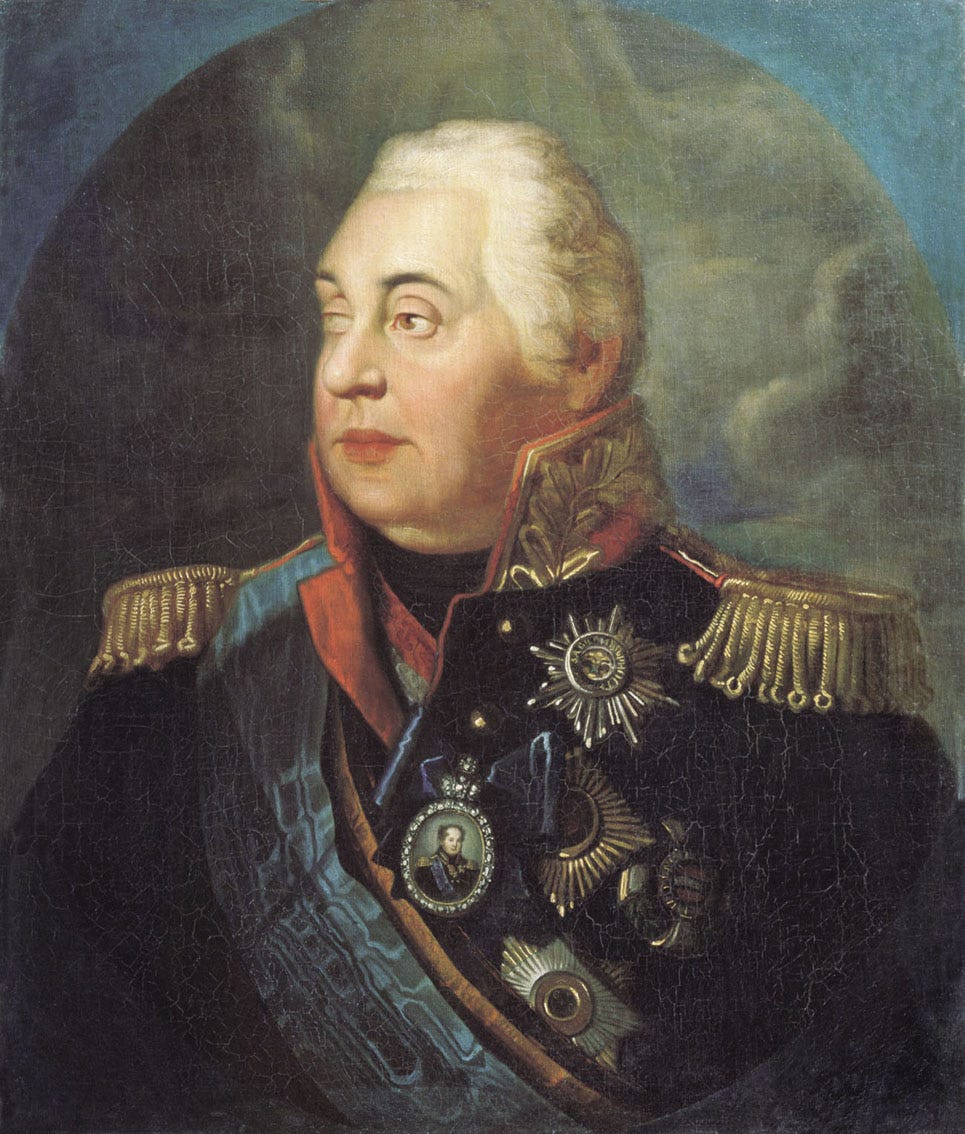
Prince Mikhail Illarionovich Golenishchev-Kutuzov-Smolensky (1745 – 1813), commander-in-chief of the Russian army.
By the start of War and Peace, Kutuzov is already one of the most decorated Russian generals. He served alongside Alexander Suvorov in the reign of Catherine the Great, and we hear many references to the great Suvorov in the novel.
He had been seriously wounded twice and lost an eye. He has been out of favour with the emperor for the last three years, but in 1805 leads 50,000 men into the field to support Austria.
BOOK ONE
Book 1, Part 2
Chapter 1
The commander-in-chief has set up his headquarters at Braunau. The Austrians have asked him to unite his forces with the Austrian army. The Russians have marched 700 miles, and Kutuzov wants to demonstrate that they are not ready to fight. So he goes to inspect them and the state of their boots.
Chapter 2
Our first look at Field Marshall Kutuzov. He lost an eye to a gunshot back in 1774, but his other eye is sharp enough: he picks out old companions from the wars, and draws attention to the lamentable state of the soldier’s boots. In his suite are the officers Bolkonsky, Nesvitsky and Zherkov.
Chapter 3
Back at headquarters, we see a bit more of the man Napoleon calls “that sly old fox”. He likes the sound of his own voice. He taunts the Austrian general, praising the armies that are likely already defeated. And sure enough, here is General Mack with news of the surrender.
Chapter 13
When Andrei catches up with the army, Kutuzov is giving Bagration orders to delay the French advance, a certain suicide mission that Andrei fancies joining. We hear Kutuzov behind a closed door, “excited and dissatisfied”. He meets Andrei’s request with a refusal: “I need good officers myself” and a warning: “If a tenth of his detachment returns tomorrow, I shall thank God.”
Chapter 14
Kutuzov plans to sacrifice four thousand men under Bagration to buy the army time to escape.
Keep reading with a 7-day free trial
Subscribe to Footnotes and Tangents to keep reading this post and get 7 days of free access to the full post archives.


